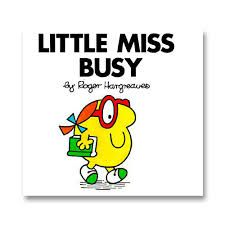Trigger warning for discussion of trauma and traumatic events.
They say that time heals all wounds – but does it? Does ignoring trauma, suppressing it, or distracting yourself from it really work? My experience suggests no – not without help.

When I think about how I was taught to respond to trauma and pain, I think of a common refrain I heard from my mother growing up. “Just keep busy. Lose yourself in something – work, or whatever.” The idea was that by distracting myself, the emotions would go away. But they never really did.
This was true of the trauma I experienced when I was hit by a car at age 13, although at the time it wouldn’t have even occurred to me to call it trauma. As with most things in those days, my bias was “OK, what next?” I searched for meaning in what happened, but only to try to understand it in a wider scope.
Was there a purpose in the fact that I had survived what could easily been fatal had fate not intervened? Was there a meaning in that? If it was “meant to be” that I survived, what did that mean about my life? Since I was given this life, what was I supposed to do with it?
Caught up in my internal existential wrestling match, it didn’t really occur to me that I would or should have other emotions about the event, and the changes it brought in my life. And, well, circumstances didn’t help things. I think this is part of the angst I have felt in reading the posts of my fellow bloggers when they write about trauma.
In those posts, they put a lot of emphasis on avoiding triggering stimuli – things that can cause flashbacks and resurgence of traumatic emotions. I’m sorry to say, that I think I’ve felt some resistance to the idea, because I was never really allowed to do that. In my upbringing, it was often treated as a luxury. Life goes on, after all.

Image Courtesy of Dani Rae Law (Creative Commons)
It didn’t seem to occur to most people to consider the idea that some things might be triggering, and if it did, they didn’t really have a lot of options in some cases. For example, a common trigger for many people is revisiting the site of the traumatic event. In my case, that was a crosswalk directly in front of my school. In fact, it was directly visible outside several of the school windows.
There was no way for me to walk to school without crossing that street, and the crosswalk was one of only a few between my home and the school – and it was visible from any one of them. My parents had two jobs, and one car. There was no way that they could drive me to school, too. So, I couldn’t avoid the location. I had to face it every day, and with it, the memories it contained.
Nevertheless, life went on, and I think most people would have thought that everything was fine – that I was feeling no after-affects. Sure, I tensed up anytime a car got too close, but that was understandable. Yes, I lived with the daily fear that any car within a few feet was going to run me over, but that wasn’t something I talked about. I was “normal,” right?
The very real after-effects wouldn’t become blatantly obvious to others until a year or two later, when I was facing driver’s ed. One may expect that crossing streets would cause me some trouble, but by then I had developed a comfort level with it. I walked everywhere, and where I couldn’t walk, I took the bus or biked.
But when I began to think about driving, there was only one thing I could think of – the moment when the driver who’d hit me realized what he’d done. I kept hearing the horrible, unearthly scream that followed. I heard his voice, begging some unseen spectator to tell him if I was dead.
He’d been barely beyond teenagerhood himself. What if I was like him? What if I made a mistake someday and hurt or killed another human being? After hearing his anguish, I couldn’t imagine the pain of living with that.

Image Courtesy of PhotoDu.de (Creative Commons)
Wrapped up in anxiety, I failed the written test and had to retake it. When it came time for actual hands on practice, I was a mess. I panicked every time I got behind the wheel. I came home from each lesson hyperventilating and shaking, visions of all the horrible possibilities flashing through my head.
I knew it was irrational – my instructor had a dual-control car, and could intervene at any time to prevent an accident; but that didn’t matter to my hyper-alert neurological system. Every time I got behind that wheel, I felt a gut wrenching fear. I felt as if death was upon me.
My mother didn’t understand, and I couldn’t explain it to her. Teenagers were supposed to yearn to drive. They were supposed to be eager to take on extra responsibility and independence. Why wasn’t I?
Of course, she hadn’t been there, through the tough times after the accident. She hadn’t seen the injuries – or even know what the intersection looked like. She’d never been there. At the time, she’d been undergoing her own trauma, locked away in her own hospital room thousands of miles away, unable to leave. And, really, we’d never talked much about the accident – at least about the emotional aspects of it.
So, she had no concept of what I was going through. She pushed and pushed and pushed for me to keep going to the lessons, and I tried and tried to convey to her the extent of the pain and panic I was feeling. Each moment behind the wheel made me feel like I was going to die from the fear alone. But she just didn’t hear, or didn’t get it. Finally, feeling backed into a corner, I put my foot down and refused to go to any more sessions.
It wasn’t that I didn’t want to drive. I did. But I struggled to deal with the emotional aftermath of the accident, and it stood in my way. I was willing to face that fear, and fight through it, but I wouldn’t be rushed through it. I knew I needed time; and that was what I wasn’t getting.
I wouldn’t get my license until I was in my twenties, and when I did, I did fine. But by then, I’d done a lot of work to process the trauma. I’d gotten counseling. I’d worked through my emotions. I’d learned to honor the process and reality of my own fears. And when the time was right, I went for it again. I’ve been driving ever since.
What I learned in the process is that time itself doesn’t heal trauma. It takes work. Emotions don’t go away with disuse, or from being ignored. In fact, if you ignore emotions, you do so at your own peril – because they pop up and cause you pain when and where you least expect them. And it’s only when you process them, that it’s possible to move past them.
TO BE CONTINUED....
For updates you can follow me on Facebook or Twitter. Feedback? E-mail me.
My book, Living Independently on the Autism Spectrum, is currently available at most major retailers, including Books-A-Million, Chapters/Indigo (Canada), Barnes and Noble, and Amazon.
To read what others have to say about the book, visit my web site: www.lynnesoraya.com.
PREVIOUS POSTS IN THIS SERIES:
- The Importance of Learning to Say “No”
- Are Autistic People More Sensitive To Trauma, Or Less?
- Talking About Trauma Part 1
RELATED READING:
- Ellen McGrath: Recovering from Trauma
Recovering from a traumatic experience requires that the painful emotions be thoroughly processed. Trauma feelings can not be repressed or forgotten. If they are not dealt with directly, the distressing feelings and troubling events replay over and over in the course of a lifetime, creating a condition known as post-traumatic stress disorder.
- Susanne Babbel: Growth and Recovery From Trauma
But as stories and literature often reveal, it is possible not only to recover from trauma, but to actually grow from it and flourish. Suffering has long been romanticized in literature, art, and folklore as transformative and empowering. There is an element of truth to this concept. But it needs to be looked at more closely. Simply experiencing suffering and trauma does not guarantee that you will become a better, stronger person for it. This attitude is a trite and irresponsible one that men for centuries have used as an excuse to abuse their children in the name of "toughening them up."




